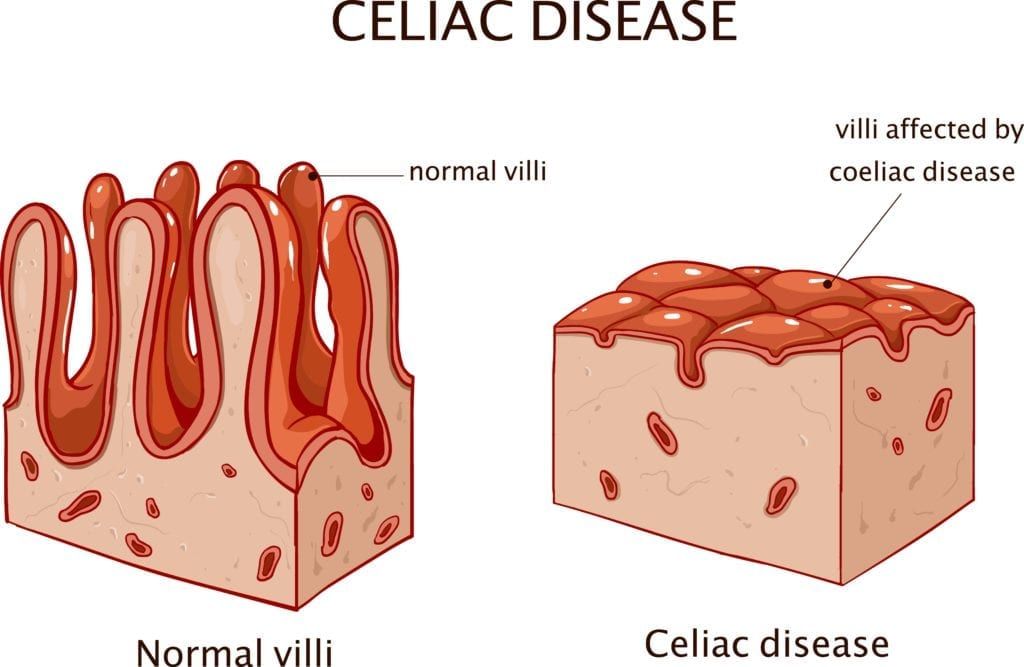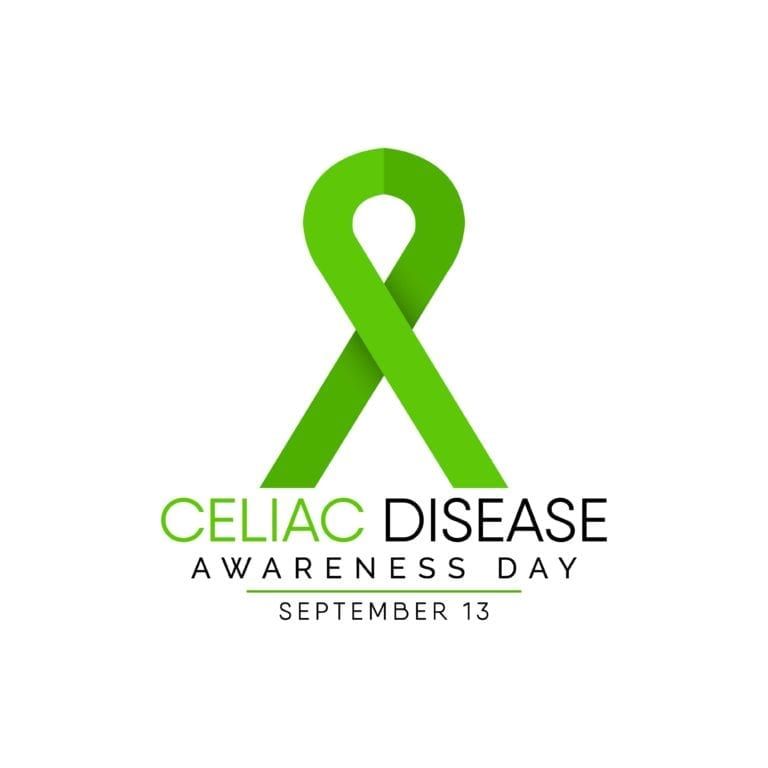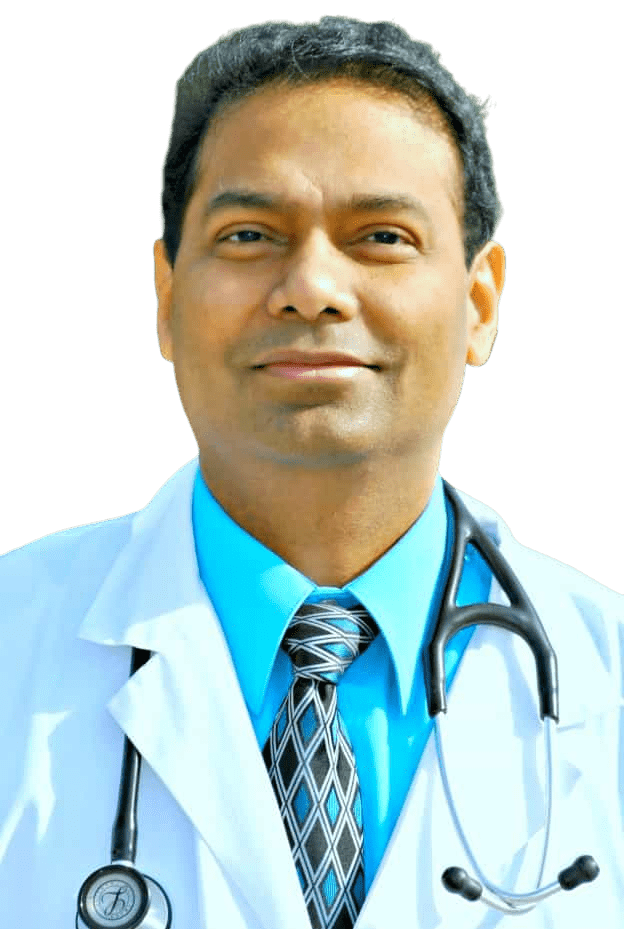Did you know that the first researcher to link celiac disease to diet was born on September 13th, 1839? Later in 1888, Dr. Samuel Gee wrote a paper titled On the Coeliac Affection which was one of the first research papers describing celiac disease and how it can be managed through proper diet. As a result, September 13th is now known as Celiac Awareness Day.
It is currently estimated by the National Institute of Diabetes and Digestive and Kidney Diseases, that around 1 in every 141 Americans has celiac disease. The disease is also hereditary, meaning that it can be passed from family memeber to family member. In fact, individuals who have a parent, child, or sibling with celiac disease have a 1 in 10 risk of developing the disease themselves.

Celiac disease is a type of autoimmune disorder characterized by an immune response to gluten that produces toxins which destroy intestinal villi. Villi are small, thin protrusions that line the inside of the small intestine. They are necessary for the absorption of nutrients from food and damaged villi can result in an inability to absorb nutrients which can cause malnutrition and permanent intestinal damage.
Depending on an individual’s age, there are different symptoms that can indicate the presence of celiac disease. In fact, children and adults can experience entirely different symptoms. Oftentimes, children affected by celiac disease will come across as being tired and irritable, will likely be smaller than their peers, and may start puberty late. Additionally, children can experience vomiting, weight loss, abdominal pain and bloating, persistent diarrhea or constipation, or pale foul-smelling stools.
Adults affected by celiac disease can experience some of the same digestive symptoms, however they are usually also affected by other symptoms such as:

- Anemia (iron deficiency)
- Brittle bones
- Seizures
- Fatigue
- Joint pain or stiffness
- Numbness and tingling in hands and feet
- Tooth discoloration or loss of enamel
- Skin disorders such as Dermatitis herpetiformis (DH)
To diagnose celiac disease, your doctor will perform a blood test to check for high levels of antiendomysium (EMA) and anti-tissue transgluatiminase (tTGA) antibodies that are commonly seen in people with celiac disease. Additional blood tests such as complete blood count (CBC), liver function, cholesterol, alkaline phosphatase level, and serum albumin may also be performed.

In cases where the primary symptom is dermatitis herpetiformis, a skin biopsy may need to be performed. If blood tests or a skin biopsy is unable to make a diagnosis, then the final step may be to have an upper endoscopy. During an upper endoscopy, a small camera attached to a thin tube will be inserted into the mouth, esophagus, stomach, and small intestines so your doctor can look for damaged villi. During an upper endoscopy, your doctor may also perform an intestinal biopsy.
If you are diagnosed with celiac disease, you will need to completely eliminate gluten from your diet. In fact, this is currently the only way to successfully treat celiac disease. By removing gluten, your intestinal villi will heal and will be able to properly absorb nutrients again. In as little as a few days, you should notice your symptoms starting to improve. While it was once complicated to eat gluten free foods, many companies are now producing gluten free alternatives for people with celiac disease.




